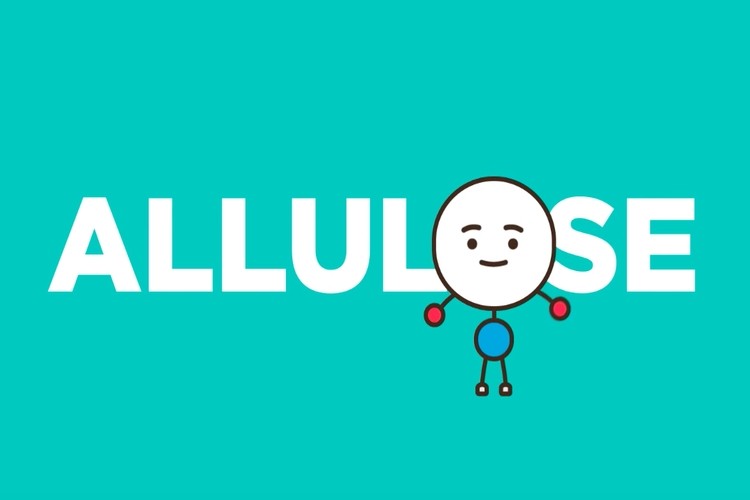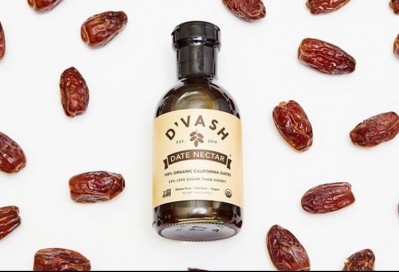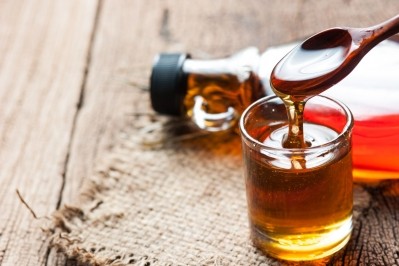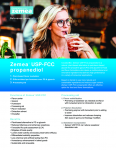'I think you’ll see a mass exodus of CPG companies moving from polyols to allulose...'
Icon Foods CEO: ‘Out of all of the projects that are in the R&D queue right now, allulose is dominating’

An ultra low-calorie sugar found naturally in jackfruit and figs that Tate & Lyle, Matsutani, and CJ CheilJedang are making in commercial quantities from corn using enzymes, allulose has the clean taste, bulk and functionality of regular sugar (sucrose), and about 70% of its sweetness.
The stumbling block is that it currently counts towards ‘total sugar’ and ‘added sugar’ on the Nutrition Facts panel, despite the fact it contributes virtually no calories and doesn’t raise blood sugar or insulin, which confuses consumers (particularly diabetics) and has deterred some manufacturers from using it, King told FoodNavigator-USA.
“There are push backs on allulose because it’s stranded in the added sugar category but all of our clients are explaining it off on their packaging similar to Know Foods and Quest Nutrition,” he said.
“Savvy manufacturers are skating to where the puck is going. And that is allulose, which is in huge demand and will be in even bigger demand if the FDA gives it its own line item on the nutritional panel and takes it out of the added sugar category [something Tate & Lyle has asked for via a citizen’s petition].
“At that point I think you’ll see a mass exodus of CPG companies moving from polyols to allulose because it is much closer to sucrose and participates in maillard [it browns] and has a good mouthfeel. It has no cooling effect like erythritol and no GI impact, and works very nicely with monk fruit and stevia [which which Icon Foods is combining it in its new Ketosesweet product].”
“Out of all of the projects that are in the R&D queue right now, allulose is dominating.”
“Allulose is different from other sugars in that it is not metabolized by the human body, it has negligible calories (0.2 kcal/g or less), it does not contribute to increases in blood glucose or insulin levels, and if included as carbohydrates and sugar (added sugar) on the Nutrition Facts label, it would lead to confusion to the consumer, particularly consumers with diabetes or those consumers otherwise concerned with accurately monitoring blood glucose.”
Citizen’s petition to FDA, Tate & Lyle Ingredients America LLC, 2015
“We’re waiting for the FDA to publish a response to our petition and we expect the answer to be soon. We strongly believe based on all the science and consumer perception data that we’ve presented that the solution will be one that US consumers can understand.”
Abigail Storms, VP, Sweetener Platform Innovation, Tate & Lyle
Monk fruit prices are coming down; stevia tech improving
So what other trends is King seeing at Icon Foods (formerly known as Steviva Ingredients), which offers a broad portfolio of sugar reduction ingredients, from stevia and monk fruit blends to coconut, agave, xylitol and erythritol blends?
“Stevia is still making strides in market adoption as advancements in purification technology mitigate the stigma of bitter off notes,” said King.
“We have seen triple digit increases in sales. As farms scale up there are also increased supplies of monk fruit. This is driving price down to compete with stevia, while advanced resin column purification technology is addressing the slight melon rind off notes indicative of monk fruit.”
Polyols: Customer attitudes vary and they are constantly shifting
As for polyols, he said, “Customer attitudes vary and they are constantly shifting, which is one of the reasons why we have such a wide portfolio. Some customers don’t want to use polyols because some consumers associate them with laxation and bloating, and in part because some of the names are not very consumer friendly, but they’re not all the same, and it’s also very dose dependent.
“Xylitol prices have more than doubled over the past 18 months. The d-xylose made from corn glucose substrate [that is the source material for xylitol] is all made in China now and it’s a really water intensive process; there was a water tax put in place last year that’s really sent the price of xylitol through the roof.
“This is driving up demand for erythritol, which is seeing price increases due to happen in Q2 and again in Q3.”
He added: “Coconut sugar is popular but flat, while agave is getting pushback as it contains fructose and for people following a ketogenic lifestyle, your liver will stop producing ketones and start metabolizing fructose, but on our retail line we sell a ton of it.”
Clean label sugar reduction is a massively booming industry
Overall, he said, choices in the sweetener category are “driven by the clean label trend followed by glycemic impact and calories. Mostly calories though. This is where allulose shines right now.
“Clean label sugar reduction is a massively booming industry, and every day I wake up I am grateful for being in the right place at the right time.
"We have moved facilities five times over the past eight years to accommodate growth. Our new facility is three times the size of our last facility and our lab has grown from 500 square feet to 3,000 square feet as we push out Icon Food Science and our ReformulateU reformulation platform for CPGs to make clean deep cuts in added sugars.”


















